
You have finally reached that stage in life when you know who you are, you know what you want and you don't have to worry about getting pregnant---you've even made peace with the little lines that showed up around your eyes, seemingly overnight. And, now, your face is breaking out. It hardly seems fair to be fighting wrinkles and zits at the same time, but it's perfectly normal. Menopause acne is just another fact of life, but the good news is that this, too, shall pass.
Symptoms
Menopausal acne---called acne climacterica---looks no different from the kind you had at puberty. It can involve pimples, which are little red bumps; whiteheads, which are little red bumps with white pus in the center; or blackheads, which are simply whiteheads whose keratin has been exposed to air, which turns it black.
Though they may look just like teenage zits, there are subtle differences in the underlying causes that can make menopausal acne a little frustrating to treat.
Causes
Your sebaceous glands produce an oil called sebum that normally lives on your skin, nourishing new skin cells and sloughing off dead ones. During the hormonal changes of puberty and menopause, this oil production increases, resulting in more oil that combines with your dead skin cells to clog your pores. When these clogs combine with bacteria, you get acne.
What's different about menopause acne is that it occurs as production of an anti-acne ovarian hormone called estradiol begins to fail. Without that natural protection, it is much harder for the skin to maintain its integrity.
Internal Treatments
New studies, such as the one done by Jonette E. Keri and Rajiv I. Nijhawan and published in the September 16, 2008 issue of Expert Review of Dermatology, have found a link between quickly digested carbohydrates and acne. White bread, sweets and sugared soft drinks increase the blood sugar, which stimulates the production of sebum.
Acne does respond to the kinds of hormones present in oral contraceptives, but these are generally not prescribed for menopausal women.
On the other hand, one advantage of being menopausal is that most prescription anti-acne medications interfere with oral contraceptives, so both cannot be taken at the same time. Talk to your doctor or dermatologist to see if there is a prescription anti-acne medication that would be a good option for you.
The healthier you are, the better your hair, skin and nails are going to be. So the best line of defense against menopausal acne is a healthy diet high in protein and fiber and low in processed starches and sugars.
External Treatments
There are many excellent over-the-counter cleansers and moisturizers on the market designed specifically for menopausal skin. Salicylic acid is very effective for spot treatments, though it can be drying. Benzoyl peroxide and retinols will also work. Different women are sensitive to different ingredients, so you may need to try a few before finding the one that works best for you.
Exfoliating regularly and gently cleansing your face at least twice a day will also help keep pores from becoming clogged.
Duration
Once the hormone storms of menopause settle down, so will the over-production of sebum. Your skin may become dryer, which will result in less clogging of the pores. This should greatly reduce the frequency of breakouts.
Related Articles
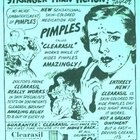
Life Cycle of a Pimple

How to Treat Acne Caused by Provera

Seaweed and Acne

Does Benzoyl Peroxide Cause Wrinkles?
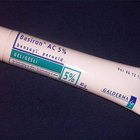
Acne Cures From the Past
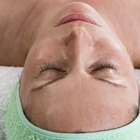
Acne & Brewer's Yeast

What Is the Initial Breakout From ...

How to Reduce Acne Inflammation
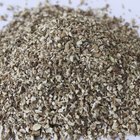
Dandelion Root for Reduced Acne Symptoms

Collagen & Rosacea

How to Use Salicylic Acid & Benzoyl ...
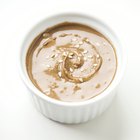
Tahini & Acne

Pycnogenol and Acne

Effects of Flaxseed Oil on Skin Wrinkles

What Are the Causes of Graying Hair?

Pomegranate Juice & Acne

How to Get a Pimple to Go Away Fast

Alternatives to Green Soap

How to Get Clear Skin in 5 Days

Glucosamine: Skin Benefits
References
Writer Bio
Brynne Chandler raised three children alone while travelling, remodeling old homes, taking classes at the Unioversity of California Northridge and enjoying a successful career writing TV Animation. Her passions include cooking, tinkering, decorating and muscle cars. Brynne has been writing fun and informative non-fiction articles for almost a decade. She is hard at work on her first cookbook, which combines healthy eating with science-based natural remedies.
Photo Credits
Image courtesy of catspjamas at Photobucket.